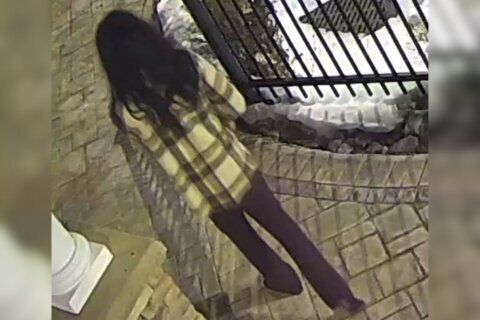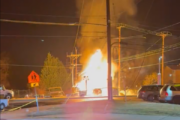A bill in Maryland to ban “ghost guns” will become law without Gov. Larry Hogan’s signature.
Last month, Maryland lawmakers approved a measure banning the sale and possession of so-called ghost guns, which don’t have serial numbers and can be assembled from kits purchased online.
In a tweet Friday morning, Hogan said he was allowing the measure to go into effect, calling it a “positive step as we seek to stem the tide of violent crime — but it does nothing to penalize those who actually pull the trigger on firearms.”
Hogan said crime remains “the most pressing concern for all Marylanders” and pressed lawmakers to take up the Violent Firearms Offender Act, which increases the penalties for gun-related crimes by repeat offenders.
I have informed the General Assembly that I am allowing legislation regarding untraceable firearms to take effect without signature. It is a positive step as we seek to stem the tide of violent crime—but it does nothing to penalize those who actually pull the trigger on firearms.
— Governor Larry Hogan (@GovLarryHogan) April 8, 2022
That measure is stuck in a committee, and the General Assembly session ends Monday.
“It is my hope that in the last days of this session, the General Assembly will do the right thing and pass the Violent Firearms Offender Act, so that we can ensure those who use guns to commit violent and heinous crimes remain off of our streets and out of our communities,” Hogan said.
Gun safety advocates had been pushing for the ghost gun measure for years. The governor’s office hadn’t signaled whether he would sign the bill, but lawmakers said they had enough votes to override a possible veto by the governor.
The measure drew the strong backing of Maryland Attorney General Brian Frosh, who celebrated the bill becoming law, saying it would help save lives.
“Ghost guns have become a rapidly growing threat to public safety,” Frosh said in a statement. “Easy to assemble kits are available over the Internet. Violent felons, children, and abusers are obtaining these lethal guns in ever larger numbers. Not only are these weapons dangerous, these unserialized, untraceable firearms hinder law enforcement’s efforts to solve gun crimes. Our law banning ghost guns in Maryland will save lives.”
The bill’s sponsors are State Sen. Susan Lee and Montgomery County Del. Lesley Lopez.
Lopez told WTOP she’s worked on legislation to regulate untraceable firearms for the past four years.
“And this time, it felt like it had the most momentum, not only because we have the support of our leadership and support of the attorney general,” but also because of the alarming rise in cases involving ghost guns, Lopez said.
“You just can’t ignore the numbers for how frequently these types of guns are being found widely in the community,” Lopez said, especially in offenses involving young people.
The day after Lopez’s bill was introduced in January, a student at Magruder High School in Montgomery County, Maryland, was wounded in a shooting involving in a ghost gun in a school bathroom.
Just this week, another Montgomery County teen was charged with assault and gun charges related to an incident involving a ghost gun.
In crafting the bill, Lopez said she worked to come up with a “clear pathway” for firearm hobbyists to stay on the right side of the law and to only target bad actors, who she defined as “mainly corporations that are selling these gun kits in a completely unregulated fashion.”
The measure bans the sale of kit guns, unfinished frames and receivers manufactured after October 1968 without serial numbers starting on June 1, 2022. Possession of unserialized firearms is prohibited starting March 1, 2023.
Firearms that that are currently owned without serial numbers will have to have the owners’ initials and ZIP code imprinted on them and entered into a registry maintained by the Maryland State Police.
The federal government is crafting regulations to crack down on ghost guns and gun-making kits.
The Maryland bill “was written to be to stand alone in a very strong posture, but also be reflective of the forthcoming changes from the federal government,” Lopez said.








